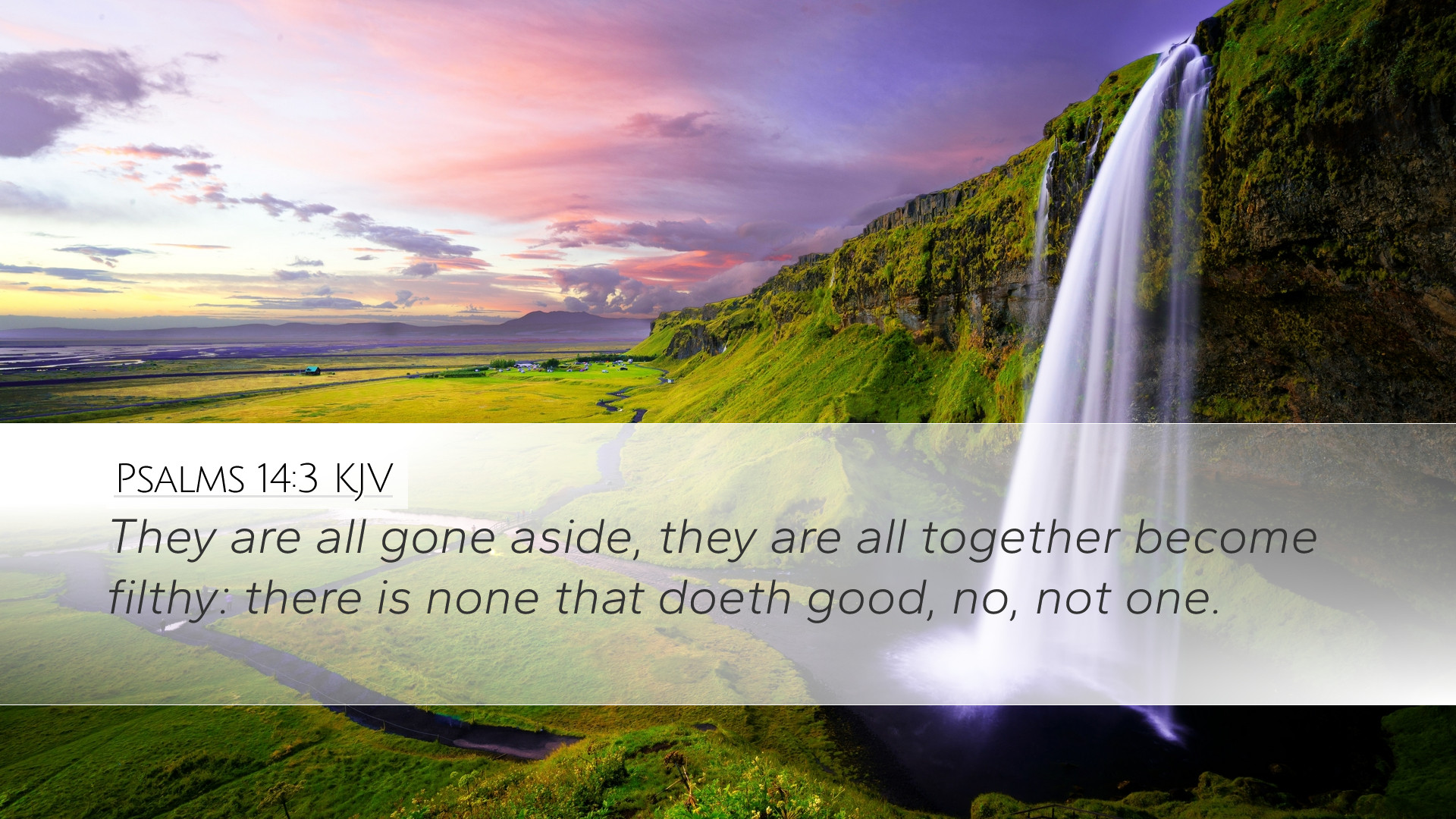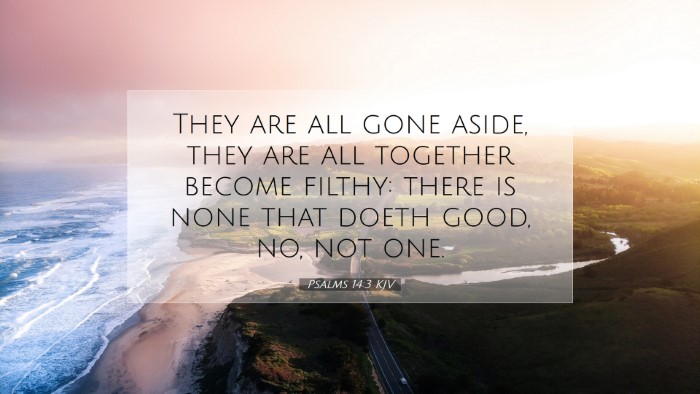Commentary on Psalms 14:3
Verse: "They are all gone aside, they are altogether become filthy: there is none that doeth good, no, not one."
Introduction
This verse from Psalms 14 encapsulates a profound and somber truth about the human condition as perceived through the lens of Scripture. Drawing insights from various public domain commentaries, we will explore the implications of this verse, its theological significance, and its application for believers today.
General Overview
The Psalmist, traditionally attributed to David, expresses a stark reality regarding human nature. Through the use of vivid imagery and generalizations, the Psalm declares the sinful condition of humanity.
Theological Insights
The declaration that “there is none that doeth good, no, not one” speaks to the total depravity that sin has created in the hearts of men. This aligns with the theology of original sin, where mankind, due to the fall of Adam, is inherently sinful and unable to please God without divine intervention.
Matthew Henry’s Commentary
Matthew Henry emphasizes that this passage serves as a reflection on the universal nature of sin. He notes, "the fact that all have turned aside signifies a rebellion against God’s ways." He elaborates that when the psalmist observes that humanity has become "filthy," it reflects an abandonment of righteousness and immersion in wickedness. Thus, the Psalm drives home the point that human efforts to be righteous apart from God are futile.
Albert Barnes’ Commentary
Barnes echoes similar sentiments, asserting that the comprehensive use of “all” in this context indicates that every person is implicated in sin. He argues that this verse serves to prepare the hearts of God’s people for the revelation of God’s grace. It strips away any semblance of pride based on moral achievements, illustrating humanity's need for redemption. Barnes poignantly asserts, "Only through divine grace can individuals stand before the holiness of God."
Adam Clarke’s Commentary
Adam Clarke dives deeper into the semantics of the verse, highlighting the term "filthy," which denotes moral corruption. Clarke asserts that it’s essential to understand the context is not merely critique but serves a greater purpose of revealing God’s character. He writes, "This verse portrays the need for a Savior, as the filthiness of mankind speaks of the need for cleansing and purification that can only come from the Divine."
Reflection on Human Nature
Psalms 14:3 confronts the notion of human goodness. It challenges the innate belief that one can achieve righteousness through personal merit. This psalm serves as a mirror reflecting the fallen state of humanity; therein lies the beauty of salvation, a transformative work initiated by God.
Practical Application
-
For Pastors:
This verse can be used to remind congregations of the necessity of grace. Pastors are encouraged to emphasize that self-righteousness is a hindrance to spiritual growth and that acknowledgment of sin is the first step towards redemption.
-
For Students of Theology:
The theological implications of total depravity outlined in this verse serve as a foundational principle for understanding soteriology. It encourages students to delve deeper into the doctrines of sin and redemption through an exegetical study.
-
For Scholars:
Scholars can explore intertextual references within Scripture that echo this theme, such as Romans 3:10-12, and engage in a critical analysis of the psalmist’s portrayal of humanity through linguistic, historical, and cultural lenses.
Conclusion
Psalms 14:3 not only highlights the moral state of humanity but also underscores the necessity of divine intervention through Christ. The insights gathered from public domain commentaries reinforce the idea that whereas humanity is lost in sin, hope lies in the redemptive work of God. This psalm is not just a lament of human failing but a precursor to the glorious gospel that offers restoration and transformation.


